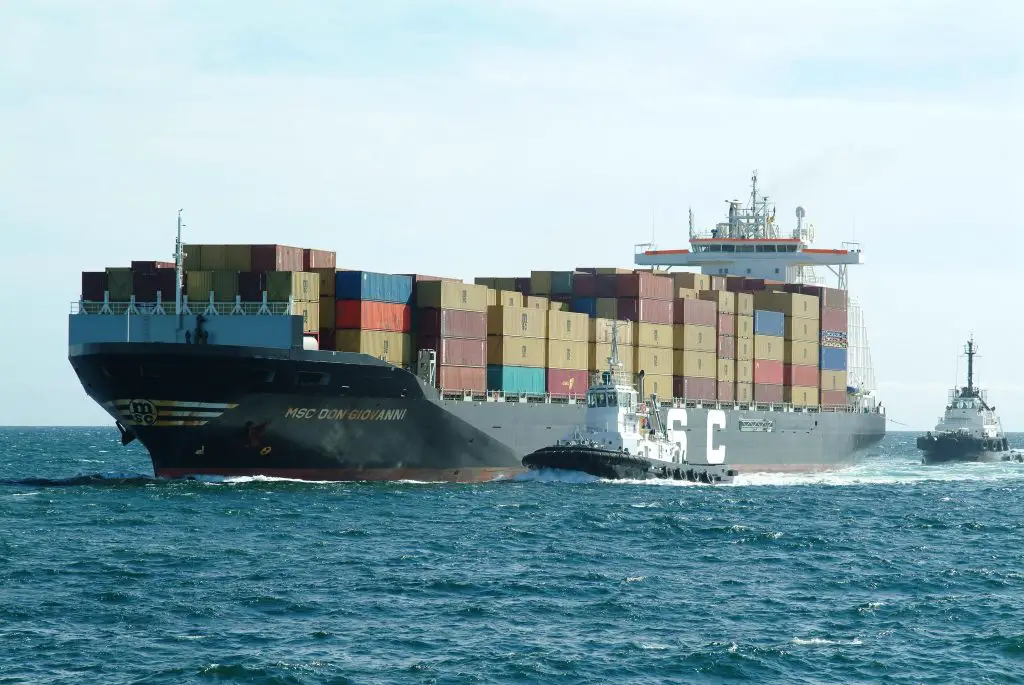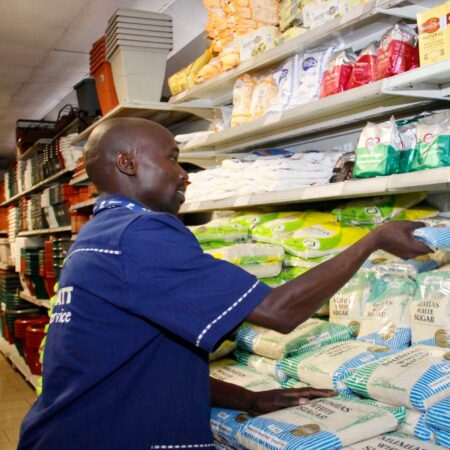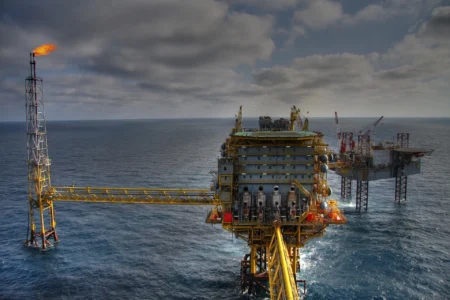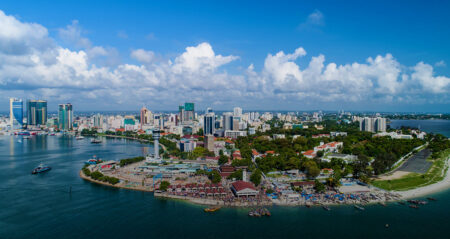Six months after hosting the first global conference on ‘Sustainable Blue Economy’, Kenya is keen to invest in international shipping, as it remains focused on tapping its maritime resources for economic growth.
The government has set-off a number of initiatives that could see the country reap big from the maritime industry, which drives 92 per cent of its international trade.
Policies, institutional changes, incentives and funding are being put in place to optimize gains in the sector, which has the potential to contribute up to Ksh500 billion (US$4.9 billion) to the GDP annually.
READ:Kenya’s Maritime Transport Policy takes shape
Shipping industry
Top on the list is the revival of the Kenya National Shipping Line (KNSL) which has been dormant for the last 22 years, after mismanagement sent it into debt and loss of business in an untapped Ksh304 billion(US$2.9 billion) business potential—an amount Kenyan importers pay as freight charges to foreign firms annually.
In 2017, the country’s demurrage on national oil imports averaged US$23 million. This is a charge payable to the owner of a chartered ship on failure to load or discharge the ship within the time agreed.
KNSL, according to the government and industry players, has the potential to create about 3,000 jobs in its first year of operation with about 10,000 jobs being created in the medium term.
The government in August last year signed a Memorandum of Understanding between the Ministry of Transport and Infrastructure and the Mediterranean Shipping Company (MSC), one of the leading global container shipping companies, for the revival of KNSL.
READ ALSO:Kenya reviving seaborne trade after MOU with global shipping company
“We are very keen to revive the shipping line and we are confident that we can run it again,” President Uhuru Kenyatta said during the signing of the MoU at State House Nairobi, adding that revival of the shipping line is a priority for Kenyans as it will create thousands of jobs.
MSC is a shareholder in the national shipping line with a 45 per cent stake, something the government plans to capitalize on to open up job opportunities for Kenyan youth, as seafarers aboard its container and cruise ships sailing the globe.
“The aim of government is to restructure the national shipping line in order to fit in with the new global business environment. Most important is to be able to build capacity of Kenyan Youth to take part in the maritime sector as well as influence destination charges on Kenyan imports that account for more than 40 per cent of the import bill that shipping lines are currently exporting,” Kenya’s Shipping and Maritime Affairs Principal Secretary Nancy Karigithu told The Exchange.
Her sentiments have been backed by the Seafarers Union of Kenya (SUK) where according to the Secretary General Stephen Owaki, revival of the shipping line will create immense employment and training opportunities for Kenyans.
“As a country, to benefit from the blue economy, that is the direction to take,” Owaki said, “for long, Kenyan seafarers have not been getting jobs. This is the opportunity to train and also create employment.”
The country has about 5,000 unemployed seafarers with another about 10,000 graduates in maritime careers, according to the International Transport Workers’ Federation (ITF).
“The government needs to push for more MoUs with shipping lines in Japan and Norway among other countries to open up more opportunities for the country’s youths,” Betty Makena, a Mombasa based ITF ship inspector told The Exchange.
It is estimated that the global shortage of seafarers is in excess of 83,900 officers and 450,000 subordinates, cutting across cargo vessels, cruise ships among others.
Government plan
In his 2019/20 budget, Treasury Cabinet Secretary Henry Rotich has marked KNSL among beneficiaries of the Ksh406.8 billion (US$4.01 billion) allocated to different infrastructure, energy and ICT projects.
“An achievement and target relating to the State Department for Shipping and Maritime has been incorporated,” Rotich says in the 2019 Budget Policy Statement, as the next financial year’s budget focuses on ‘creating jobs, transforming lives and harnessing “the Big Four”.
The government is also in the process of transforming Bandari College in Mombasa into a centre of excellence for maritime studies-the ‘Bandari Maritime Academy’, as the country moves closer to rolling out the National Maritime Transport Policy that will guide exploitation of resources in the sector.
In the estimates for financial year 2019/20, Treasury had allocated Ksh2.17 billion (US$21.4 million) to Shipping and Maritime with about Ksh1.6 billion (US$15.8million) going to the Kenya Maritime Authority (KMA).
Fishing and other sectors
Efforts are also in place to tap into the country’s fishing industry where according to government, Kenya’s Exclusive Economic Zone (EEZ) has an annual potential of 350,000 metric tonnes, capable of generating Ksh90 billion(US$887.9 million).
READ:Fish farming in Kenya, what you need to know, the opportunities that lie therein
However, the country is only getting a paltry 9,134 metric tonnes worth Ksh2.4 billion (US$23.7million).
Other untapped areas include oil and gas, sport fishing (tourism), seaweed cultivation and cruise tourism.
To encourage investment in the fishing industry and the maritime sector, the government plans to introduce VAT exemption on packaging material and inputs in fisheries processing.
Investors in the maritime sector also stand to benefit from a 150 per cent reduction on corporation tax based on the value added such as the number of jobs created.
Since coming into power, President Kenyatta has been passionate about the maritime sector which has the potential to grow the economy by double digits, hence the creation of a dedicated maritime department as well as the Blue Economy Committee.
READ:President Kenyatta reveals plans to support blue economy
Kenya has 370 kilometers from the shore into the ocean, 600 kilometers of coastal length and about 10,700 square kilometers of navigable inland waters.
Total water surface is estimated at 240,700 square kilometers of the country’s total area of 580,367 square kilometers (42%)-equivalent to the total land surface area of 31out of the 47 Counties.
In November last year, the country successfully hosted ‘The Sustainable Blue Economy Conference’ in Nairobi, which brought together over 17,000 participants from around the world to learn how to build a blue economy.
“The blue economy is the new reality. Kenya has to position itself for its full share of jobs, wealth and opportunities in the global maritime sector,” said Karigithu.
Jobs in the shipping industry are among the well paying in the world, ranging between US$1,100 monthly for a subordinate to US$14,000 for masters and chief engineers.
If successful, Kenya will join the likes of Ethiopia whose shipping line earns the country over US$ 40 million annually from its fleet of 18 commercial ships.
“We plan to have our national shipping line chatter vessels for trade and have its own in the near future,” Karigithu said, a move that will cut the government’s cost of shipping.
The government has also been keen to have imports and exports covered locally under a State led marine cargo insurance policy.
According to the insurance sector data, Kenya gives an estimated Ksh21 billion (US$207.2milion) to foreign underwriting firms annually.
READ:New rule on marine insurance lures shipping firm to East Africa
Marine Cargo Insurance policy provides indemnity against loss or damage for goods being transported by sea or air, and incidental land transportation.











